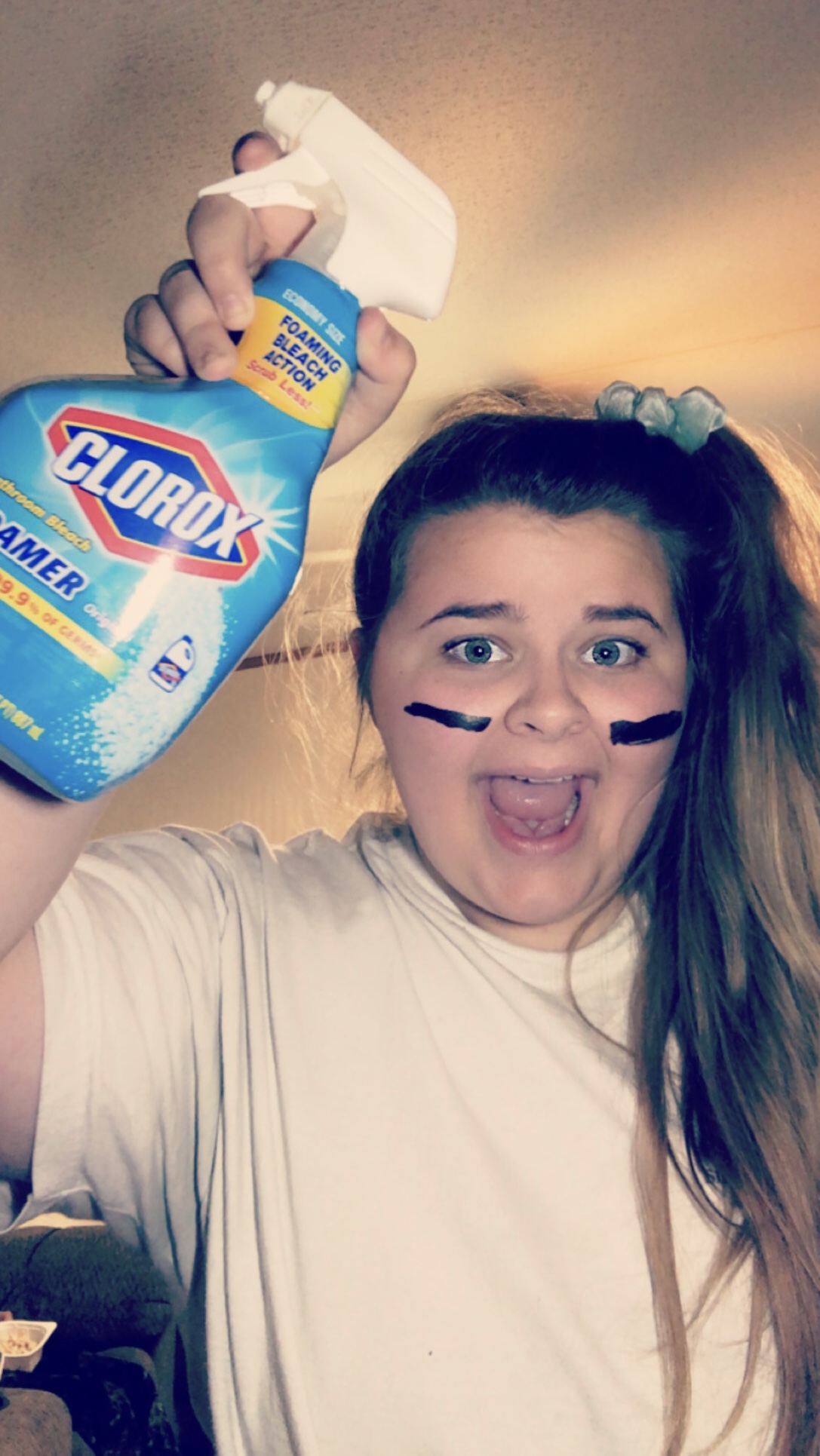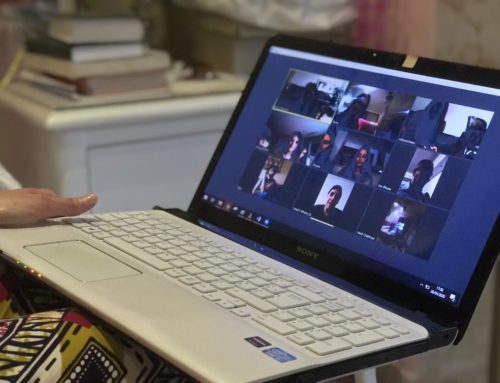
Rising Senior Chloe Greer!
This is why…
I’ve seen hundreds of good, bad and ugly nonprofit pitches as a media correspondent and former producer for the Public News Service. One report by Agility PR Solutions found that nearly half of all journalists worldwide receive more than 25 email pitches a day, while producing fewer than 25 pieces a month. So when we receive a GREAT pitch…it’s time to celebrate!
Sixteen-year-old Chloe Greer’s pitch is by the far the most genuine I’ve seen a long time. It can be overwhelming to think of pitching stories to press when the world has turned upside down. Chloe’s pitch was confident, clear and concise.
Meanwhile, I have been getting a host of really bad pitches lately that start with “Dear Journalist.” Insert [Immediate Eye Roll]
I have to admit that I’ve been “pitched” by this nonprofit with a rather lengthy press release, but I trashed the original pitch because they were not ‘local enough” for our publication.
But Chloe was local. Thankfully they reached out. She sent the following email in my inbox shortly after I mentioned the nonprofit film production in her hometown paper:
“Hello Antionette Kerr, My name is Chloe Greer and I recently seen your article on ‘Local family joins global theatre production’ I am also in this Digital Performance Project. Also my friend Lucy Duran is, who lives In Lexington also. We both have participated in Lexington Youth Theater plays. Please let me know if you need any more information.”
Note: With Chloe’s permission, I’ve included her exact words. It’s important to see that pitches are generally more polished grammar wise, but she’s 16 and there was something appealing about the notion that she wasn’t being overly massaged by communications staff. In fact, it was her authentic voice that clued me in that she was not being coached to get another story for the nonprofit film org.
She ended with:
Oh — and it’s the creation of a non-profit youth theatre company. Wish us luck!

Chloe’s pitches reflect the most important elements of a good pitch. I teamed up with my friend Danielle Baldwin to talk about one of her favorite topics. She has worked in several aspects of the public relations world to present our small pitching award to Chloe.
Together we want to point out 5 noteworthy things Chloe did right.
1) Do your homework:
Chloe took the time to understand what I cover. Previously, the affiliated nonprofit sent a long press release about the film production. My coverage area was limited to one county [not mentioned in the release] so I trashed it. It took other actors and Chloe to “localize” the context. Most reporters are too busy between shrinking newsrooms, mandatory weekly furloughs and breaking news to figure out how a “non-essential” story deserves more than a second glance.
Your homework should also include letting the reporter know if you have read his or her past story. Looking for themes with reporters is a great way to get your message across. If you see a reporter writing about topics consistently that means one of two things:
1) They are assigned to that topic
2) Or they have a personal interest in the topic
Both are good news for you!
2) Show that your topic is something that people are passionate about:
The media needs viewers, readers and an audience. Share your current experience with the subject of your pitch and any effect it may or may not have had on your own life. Has this topic played a big part in your life, now or previously? And ask yourself, “Why now?” What makes this topic newsworthy? If you cannot answer that one simple question on your own, your pitch and the subject might need a bit more work before it is ready for prime time.
Does your pitch require that you do some additional investigative research in order to be thorough and accurate? Be prepared to answer questions about the research required and how you plan to go about doing that research. Could the subject benefit from an interview with a leading authority? Could you get that interview on your own? Would you need help doing so?
3) Focus on people directly impacted:
If it’s not personal to you, who can tell a personal story? In general, journalists will be more interested in people than organizations. We are often looking for people “directly” impacted by the problem you’re seeking to address, rather than the organization’s position.
Chloe talked openly about the student-driven nonprofit providing important opportunities and how she struggled mentally with losing the outlet of performance with the COVID-19 closings of theater and productions. If you have people willing to be open that’s going to help the compelling story.
4) Save the mission language for later:
Hold your elevator speech for donors. Journalists might care about your nonprofit’s mission but that’s often secondary to the people involved in the organization. The mission language is what boilerplates were made for!
After I responded with interest, Chloe sent all the nonprofit boilerplate type stuff and I used it as secondary content.
5) Seek SEO hype whenever possible:
Can you directly tie your subject to other timely or popular pieces on the Web? Can you provide linkable URLs related to your topic? Finding ways to make your pitch and its content SEO-rich in multiple ways is also an optimal way to make sure your pitch is successful.
We are in a time where search engine optimization is baked into every piece of popular content on the Web. Once you get to the point where you are actually building an article based on your pitch, it is crucial to make sure you curate that content in such a way that it has a real chance to rank high in search engines when someone searches using popular terms for a subject, that you just happen to have in your article.
These days, Search Engine Optimization of online content is no longer an option, it is a given. The content of your article after you have successfully pitched will be no different. Sure, your editor or the company you are pitching to could easily add keyword afterwards, but the more you can do this on your own (and your sample work reflects this as well), the greater your chances will be of having your pitch accepted.
One last thing…You should disclose any conflicts of interest…
In Chloe’s case, she warned me that she was also pitching the name of her friend Lucy. That helped me to decide not to run both of their stories within the same month.
Ask yourself…is the subject of your pitch something you are an expert on because of personal or previous professional experience? Will your content end up discussing a company you have previous work experience with or one in which you have some kind of personal or professional relationship? Are you married to someone who works in the industry you are discussing or for a company you may mention in your article?
If the answer to any of these questions is “Yes,” then you need to make sure you disclose that upfront, long before you are asked or it is discovered in some negative way. Answering any of these questions with a “yes” does not necessarily cancel out your opportunity to pitch successfully or have your pitch accepted.
Contrary to what you may expect, the fact that you have a more, shall we say, complicated relationship with the topic of your pitch, may work in your favor and may give you a leg up when it comes to having your pitch accepted. Either way, disclosure is paramount, for professional and legal reasons. Be honest, be explicitly clear and do it at the time of your pitch, not afterwards.
Should you be pitching right now?
The answer is “Yes!!!!” The news cycle is crowded but busy journalists are always looking for compelling stories, and there are plenty of ways to get your stories out there. Chloe is just one example.
A report from Adweek says journalists spend less than a minute reading most pitches!
Be like Chloe and make yours count!






